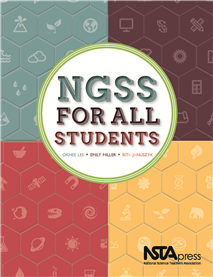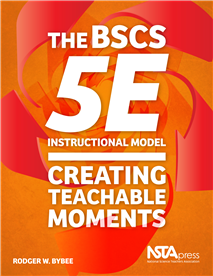All Book Chapters
Book Chapter
Conceptual Framework Guiding the NGSS Diversity and Equity
This chapter is intended to guide readers to better understand the case studies. It lays the conceptual grounding for effective classroom strategies identified for each demographic student group. It also highlights caveats to understand the purpose o...
Book Chapter
Economically Disadvantaged Students and the Next Generation Science Standards
Teachers of economically disadvantaged students will have to narrow the achievement gap while also meeting the higher expectations presented by the new standards. In this chapter, effective teaching strategies for economically disadvantaged students ...
Book Chapter
Students From Racial and Ethnic Groups and the Next Generation Science Standards
Effective strategies for students from major racial and ethnic groups are categorized as culturally relevant pedagogy, community involvement and social activism, multiple representation and multimodal experiences, and school support systems including...
Book Chapter
English Language Learners and the Next Generation Science Standards
The science and engineering practices described in the NGSS are language intensive and present both language demands and language learning opportunities for English language learners. This vignette illustrates how very young students, many of whom ar...
Book Chapter
Girls and the Next Generation Science Standards
The Next Generation Science Standards (NGSS) pave the way for increased exposure to all disciplines of science for all students. This is a breakthrough, in particular, for girls, as research attributes gender disparities in science achievement, coll...
Book Chapter
Students in Alternative Education and the Next Generation Science Standards
Alternative education encompasses many nontraditional models, some of which are intended to target students at risk for dropping out. The Next Generation Science Standards (NGSS) raise the bar for all students. This magnifies the need for teachers i...
Book Chapter
Gifted and Talented Students and the Next Generation Science Standards
Although the Next Generation Science Standards (NGSS) provide academic rigor for all students, teachers can employ strategies to ensure that gifted and talented students receive instruction that meets their unique needs as science learners. The vign...
Book Chapter
Using the Case Studies to Inform Unit Design
The Next Generation Science Standards (NGSS) transform the way we approach teaching science by reflecting how scientists think and work. When we involve students in phenomena and task them to explain and predict those phenomena, they discover the us...
Book Chapter
Reflecting on Instruction to Promote Equity and Alignment to the NGSS
Prior to the Next Generation Science Standards, science ideas were removed from practices and crosscutting concepts, which resulted in science learning as a memorization exercise that did not enable students to explain related phenomena. The major sh...
Book Chapter
Case Study Utility for Classroom Teaching and Professional Development
Every teacher who loves to teach science experiences how science learning inspires all students. Science can motivate even the most reluctant learners, and teachers notice that all students bring ingenuity to science class! These professional develop...
Book Chapter
What Are Teachable Moments, and How Are They Created?
This chapter serves as an introduction to the primary themes of teachable moments and the BSCS 5E Instructional Model. First, there’s a discussion of teachable moments and then a summary of the instructional model. The model provides teachers with ...
Book Chapter
Reviewing Education Research Supporting Instructional Models
This chapter reviews education research supporting instructional models, including the 5Es. The BSCS 5E Instructional Model is grounded in sound education theory, has a growing base of research to support its effectiveness, and has had a significant ...
Book Chapter
Exploring Historical Examples of Instructional Models
This chapter discusses several historical predecessors to the contemporary 5E Model and explores the historical idea of what can be considered an instructional model. Chapter 10 is included in this book selection and provides background on how implem...
Book Chapter
The BSCS 5E Instructional Model
This chapter presents a detailed in-depth explanation of the BSCS 5E Instructional Model. The model is commonly referred to as the 5Es—engage, explore, explain, elaborate, and evaluate. It can be used to help frame an integrated instructional seque...
Book Chapter
What Can We Learn About Conceptual Understanding by Examining the History of Science?
This chapter focuses on the history of science and its importance to anyone teaching for conceptual understanding. Even though the Next Generation Science Standards (NGSS) do not include the history, this does not mean it’s not important to embed...




